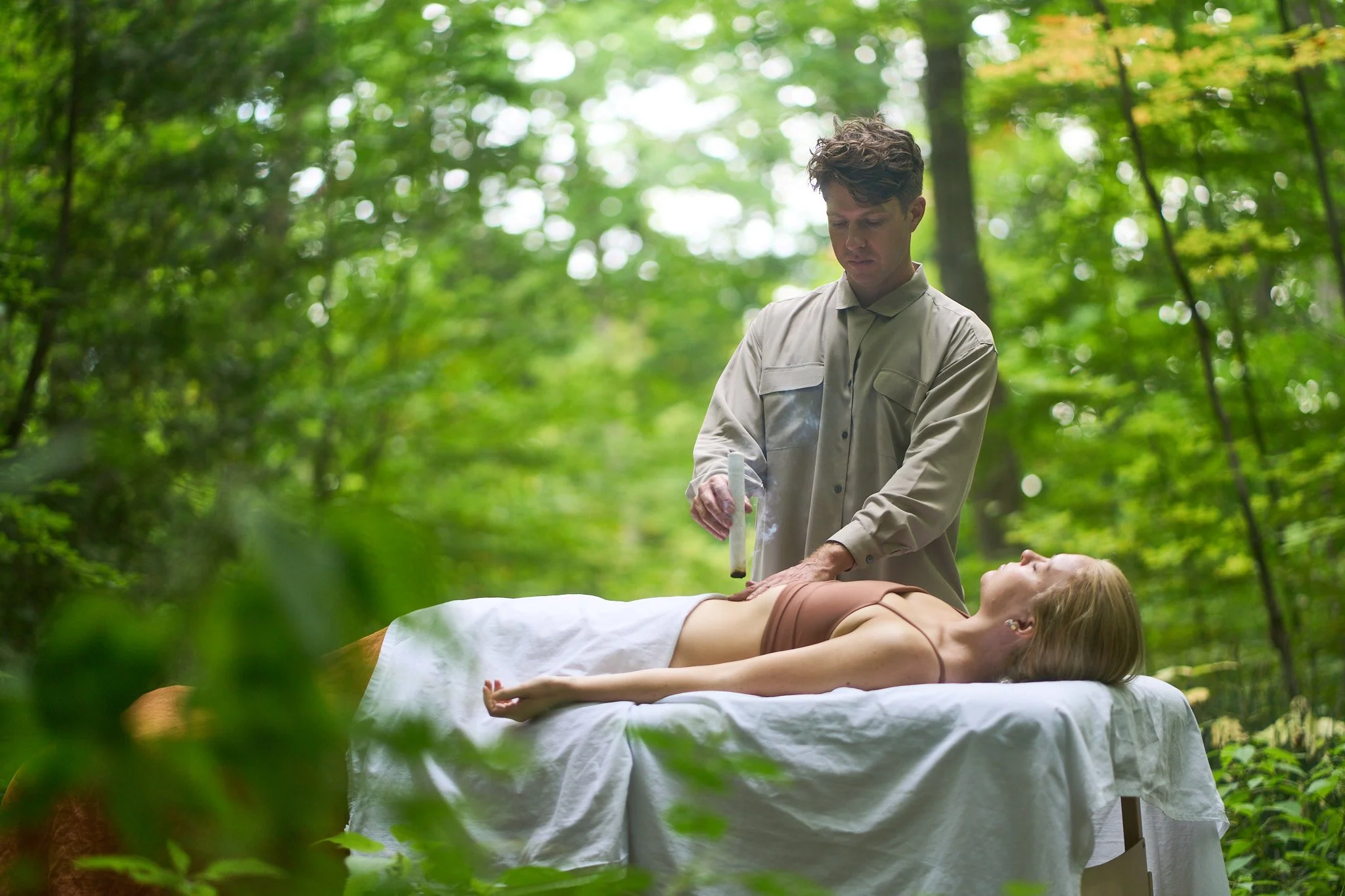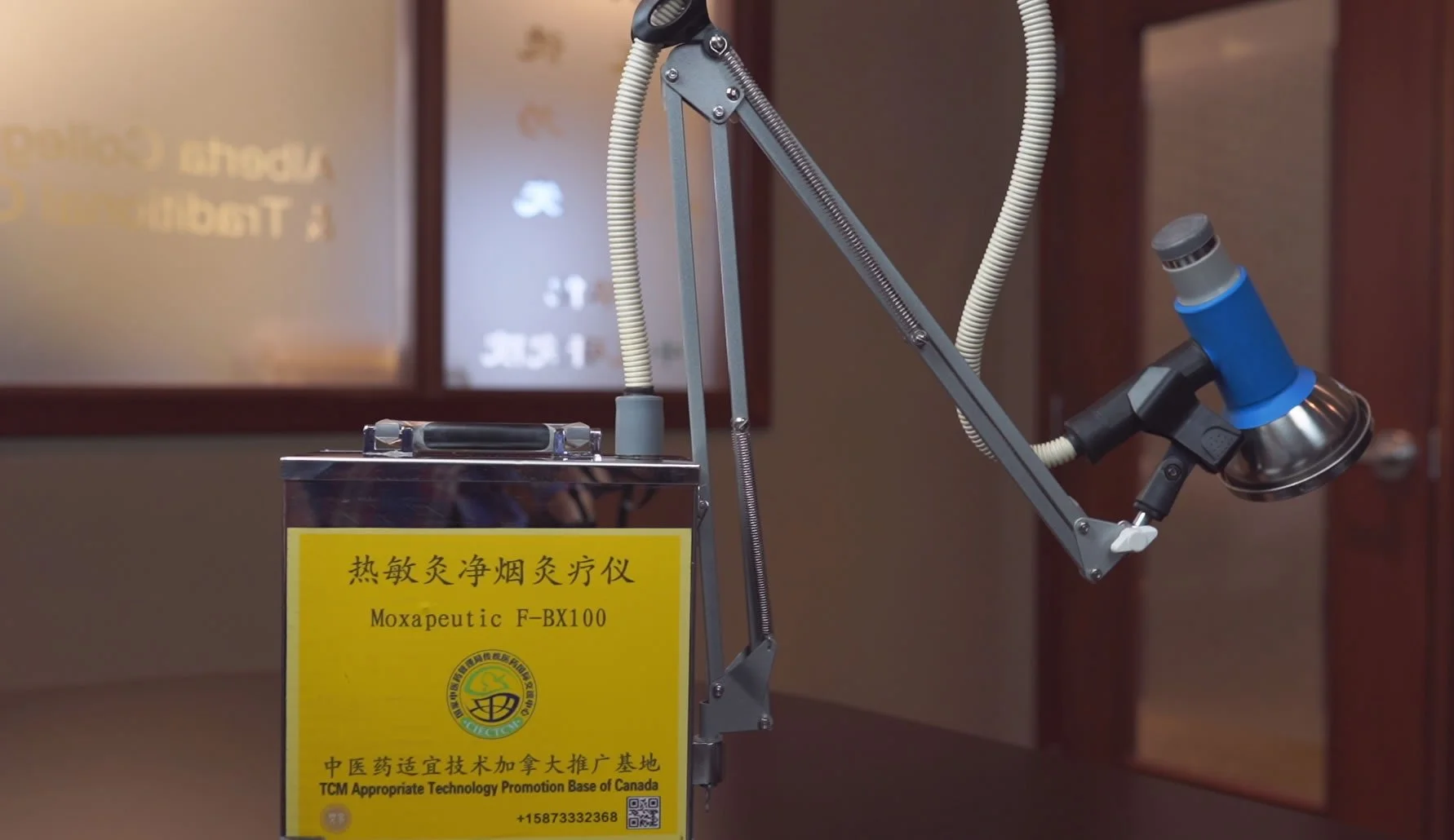Acupuncture
Registered Acupuncturists are health care practitioners trained in Traditional Chinese Medicine. They approach treating the body holistically, and through observation and consultation will assess the overall constitution of the patient while addressing the primary reason for the visit.
A treatment can involve a combination of acupuncture, cupping, gua sha, moxibustion and nutritional/lifestyle advice depending on the needs of the patient. Acupuncture, cupping, gua sha and moxibustion are modalities that Registered Acupuncturists use to move and regulate qi, and blood in affected acupuncture channels and tissues. The regulation of these physical and subtle substances assists the individual back to a state of equilibrium.
In addition to being effective at treating myriad ailments, an acupuncture treatment can also be deeply relaxing, something that many people are surprised by and come to appreciate about their appointments.
Acupuncture can be helpful in treating a variety of conditions including: pain and mobility, headache, insomnia, infertility, issues with menstruation, stress, addiction, digestive disturbance and emotional imbalances. Allied modalities such as cupping, gua sha, tuina (Chinese bodywork) and dietary therapy are often utilised in conjunction with acupuncture to tailor a treatment specific to the individual.
Moxibustion
Moxibustion is a therapeutic method of treating pain and dis-ease by burning specially prepared ‘moxa-wool’ made from mugwort. The smouldering herb is held close to the selected point or body area to warm the affected acupuncture channel. It has been used widely in East Asian countries since prehistoric times and in all likelihood predates acupuncture. Acupuncture and moxibustion are often used together as complementary therapies. For issues where acupuncture alone has not been effective, moxibustion can prove very beneficial.
The soothing, activating and penetrating heat of moxibustion is used to treat muscular pain and injury, arthritis, bronchitis, menstrual pain and irregularities, digestive issues and to boost or tonify qi, our vitalizing force.
In clinical studies moxa, (short for moxibustion), has exhibited the ability to emit infrared wavelengths, this invisible part of the light spectrum produces an anti-inflammatory effect and speeds up healing, this makes moxa especially effective in treating traumatic injuries such as sprains, breaks, bruising and cuts. It is also indispensable in treating and relieving pain associated with menstruation such as that caused by Polycystic ovary syndrome (PCOS).
At West Toronto Acupuncture, we use a special machine, pictured here, to hold the moxa in place and filter the smoke away from the patient and out of the room. This results in a more pleasant and entirely safe experience for the patient.
Frequently Asked Questions
What do I wear to an acupuncture appointment?
While wearing comfortable clothes to your appointment is helpful it’s not necessary, should you be coming from, or, heading to work, there are linens provided for draping and comfort.
Is it painful?
The short answer is “no”. But I always tell my patients that acupuncture is NOT a sensation-less technique. There will be sensations, generally a very slight prick when the tiny needle makes contact followed by a feeling of pressure, often described as a dull, achey or heavy feeling. This is a normal and desired sensation that indicates the point has been activated.
Where do you get your acupuncture needles?
I source my needles from several reputable suppliers including Eastern Currents and EACU Medical Instruments. I have a passion for quality and use the highest grade needles available. All needles are sterile and single use and made of medical grade stainless steel.
What can I expect after an acupuncture treatment?
Generally you should feel relaxed and lightly energised after your treatment. It’s important to remember that the effects of acupuncture are far reaching, when possible try to schedule your day after so that you have some time to move a bit more slowly, drink some water and eat well. It’s best to avoid excessive alcohol consumption on the same day after a treatment, so keep this in mind when booking your appointment.




